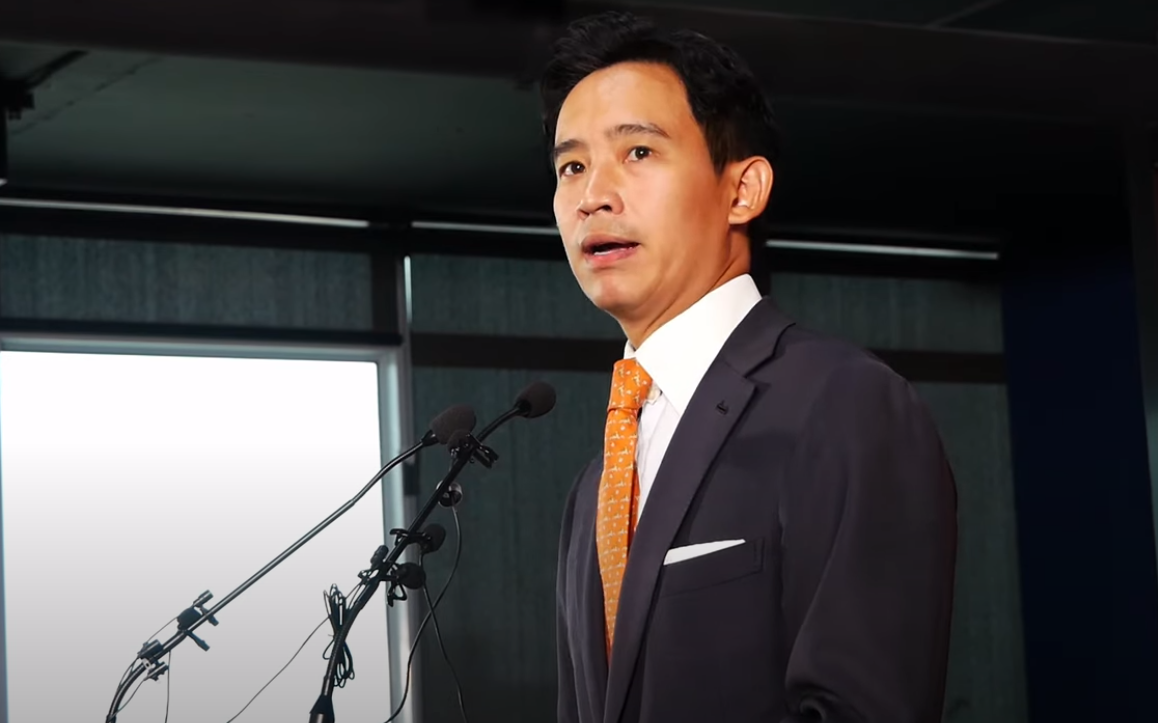Thailand plays out its party-dissolution ritual
August 9, 2024
Progressive party scuttled as protection of the monarchy overrides the verdict of the voters.
A peculiarly Thai political ritual is playing out in the kingdom this week.
In Act 1, the courts disband a popular party that is seen as a threat to the monarchy and ban its leaders from politics. In Act 2, the party reinvents itself and elects new leaders. Act 3 is yet to be staged but if a familiar script holds true, the party will go on to contest elections and continue to be dominant.
With this week’s Constitutional Court ruling against the Move Forward Party, the courts since 2007 have now scrapped five political parties seen as threatening the establishment – four highly popular and one minor.
All the three big parties dismantled in the past – in 2007, 2008 and 2020 – morphed into new parties that continued to win electoral support. Pheu Thai, the party of dismissed prime minister Thaksin Shinawatra that is now the main party of the governing coalition, is a reinvention of a previous Thaksin party.
The Constitutional Court this week scuttled Move Forward, which won last year’s national elections, gaining 151 seats in the 500-member National Assembly – 10 more than Pheu Thai. But in a joint sitting of parliament, it was blocked from forming a governing coalition by the weight of numbers of a military-appointed Senate.
It became the main opposition party.
Move Forward was a reincarnation of Future Forward, the progressive, anti-military party that won 81 seats in the 2019 elections but was dissolved by the Constitutional Court in 2020.
Move Forward’s offence was to try to amend the country’s lese majeste law, Section 112 of the Criminal Code, that is central to the lawfare that characterises Thai politics. It is illegal to insult, defame or threaten the monarch or the monarchy as an institution.
Thailand’s law is particularly strict, with penalties ranging from three to 15 years for each count. And it is one country that actively enforces its lese majeste law. The law allows anyone to file a lese majeste complaint. Police investigate all allegations.
Prosecutions became frequent from mid-2020 as protests against the military-linked government gathered force.
The NGO Thai Lawyers for Human Rights says that between July 2020 and June 30 this year, 1,954 people have been prosecuted for political participation and expression. At least 272 are facing charges under Section 112.
Move Forward proposed amending the law to require that any complaints must be filed by the royal household. It also wanted sentences to be reduced.
Move Forward’s troubles began in January, when the Constitutional Court held that the proposal to change the law showed an intent to separate the monarchy from the Thai nation and was significantly dangerous to national security.
It ordered the party to stop all attempts to change the law. Campaigning on the issue, it said, was considered an attempt to overthrow the constitutional monarchy.
In March, the Election Commission asked the court to disband Move Forward.
Nothing happens by accident at these high levels of Thai governance. The commission would not have filed the petition asking for Move Forward to be dissolved if it were not confident about the result.
The now-well-known ritual negating the will of the voters was in play again. On Wednesday, the nine judges of the Constitutional Court unanimously decided to disband Move Forward, saying the party had abused the monarchy to try to gain political advantage. This had caused the public to misunderstand the King, who should be central to every Thai person’s life.
It also banned 11 party leaders, including former leader Pita Limjaroenrat, from involvement in politics for 10 years.
Move Forward will now play its part in Act 3, where it emerges from the ashes as a new political force.
In 2007, Thaksin’s Thai Rak Thai Party was dissolved, only to reform and continue governing as the Phalang Prachachon (People’s Power) Party. People’s Power was dissolved in 2008 but emerged as Pheu Thai, later to govern with Thaksin’s sister, Yingluck, as prime minister.
Yingluck was removed in the 2014 coup but Pheu Thai continues.
Future Forward was dissolved in 2020 but in the 2023 poll Move Forward almost doubled the number of seats the progressive movement controlled.
Under Thai law, all MPs must belong to a party: there are no independents. Move Forward will act quickly to sign up its MPs to another party and it is confident there will be no “Cobras” – MPs who betray their party by defecting to another.
It has reportedly lined up an obscure party with no MPs, called Thinkakhao Chaovilai, as the new home for its MPs. It will change the name later.
The new leader will reportedly be Sirikanya Tansakul, the head of the party’s economics team. Sirikanya, however, could still face problems: she, along with other colleagues, is the subject of a National Anti-Corruption Commission inquiry into those who backed the party’s moves to change Section 112.
The judges would know that scuttling Move Forward is not the end of the progressive movement as a political force. But they continue with the ritual.
They see themselves as defending the King and the institution of the monarchy. And it is hard to imagine the King would be happy with a major political party that has as a key policy plank watering down the laws that fend off his critics.
The monarchy is central to a powerful network – the palace, the military, the judiciary, the senior bureaucracy..
Democracy is not a core value.
Protecting the monarchy is imperative.

